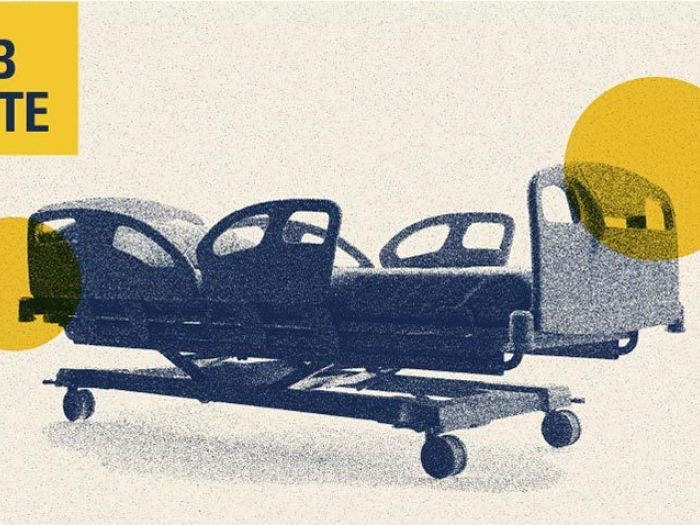The device, which takes measurements every two minutes, was able to detect infection and cytokine release syndrome events several hours sooner than routine monitoring.
11:54 AM
Author |
A simple, wearable temperature sensor was able to detect dangerous complications in hospitalized cancer patients hours earlier than routine monitoring, a team from the University of Michigan Rogel Cancer Center found.
The device, which takes readings every two minutes and wirelessly transmits them to the cloud, was able to quickly detect adverse events that affect body temperature, like infection and cytokine release syndrome, allowing for swifter interventions, according to findings published in Cancer Cell.
The study examined data from 62 patients at the U-M who were undergoing treatment that included a hematopoietic stem cell transplant or CAR-T therapy using a wearable sensor already approved by the Food and Drug Administration for home use.
The researchers were able to detect potentially dangerous fevers about five hours earlier than standard temperature checks, which typically happen every 4-8 hours in the hospital.
Along with frequent monitoring of fluctuations in each patient's temperature, the study also examined more subtle changes in temperature that may appear as deviations from the patient's baseline circadian pattern, signaling a potential problem before a steep temperature rise.
"This lead time is clinically significant for patients with cancer, who are commonly immunocompromised and at risk for infection," said study co-senior author Muneesh Tewari, Ph.D., a professor of internal medicine and of biomedical engineering at U-M. "How quickly doctors can administer antibiotics can play an important role in combatting potentially fatal infections and sepsis."
The monitoring approach could also facilitate moving some costly inpatient CAR-T care to the outpatient setting by providing additional lead time for the patient to return if a problem was detected, noted the study's other senior author Sung Won Choi, M.D., an associate professor of pediatric hematology and oncology.
The research builds on previous studies in mice.
Disclosure: Six of the study authors are inventors of intellectual property related to the work, for which the University of Michigan is pursuing intellectual property protections.
Paper cited: "High-frequency temperature monitoring for early detection of febrile adverse events in patients with cancer," Cancer Cell. DOI: 10.1016/j.ccell.2021.07.019

Explore a variety of health care news & stories by visiting the Health Lab home page for more articles.

Department of Communication at Michigan Medicine
Want top health & research news weekly? Sign up for Health Lab’s newsletters today!





